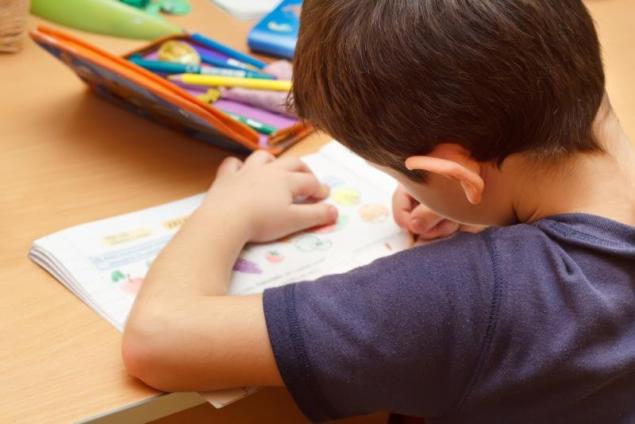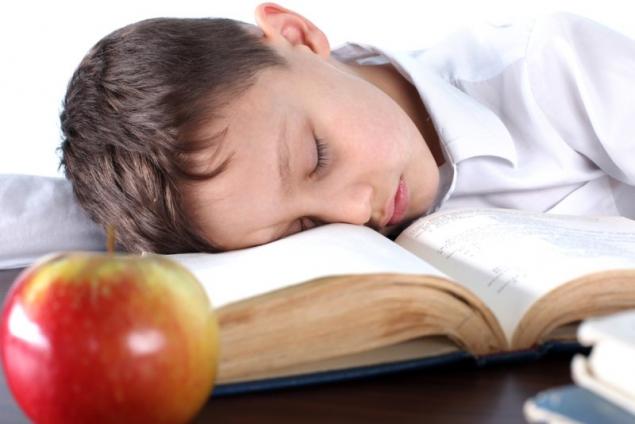171
Do students need homework?
When does a child get up at 6 a.m., sit out of school, have some lunch in the afternoon, attend a music school or sports section, and come home late at night? Even cartoons cannot be talked about...

DepositPhotos
“I don’t want to do homework!” – almost all moms and dads heard this phrase from their child. In these cases, adults use bribery, coercion or threats to deprive the student of entertainment. But not in Spain, where outraged parents decided to stage a thirty-day strike against a huge amount of homework.
Spaniards are protesting en masse because students spend too much time on lessons, rather than more useful activities. The alliance of parent committees believes that the school curriculum is outdated and does not take into account the need for children to rest.

DepositPhotos
Homework at school The average Spanish student spends homework 6.5 hours a week. By comparison, small Chinese people spend 13.8 hours a week doing homework, while Russians do 9.7 hours a week. But in Finland and South Korea, children spend less than three hours a week on lessons and show the best results in terms of knowledge.

DepositPhotos
In Spanish families believe that for a child such a volume of extracurricular work is hard labor. Anna, a 37-year-old mother of four from Madrid, said: “I joined the strike because the children do not have time to rest, play, hobbies and socialize with family because of homework.
The daughter spends two hours each day on lessons. Basically, it is rewriting large texts from textbooks. My son is very tired of boring and monotonous tasks that are completely ineffective. He doesn’t seem to have any new knowledge after doing his homework.

DepositPhotos Lessons spoil the plans of our entire family. Everyone stays at home until the tasks are ready. We cancel trips and trips, walks in the park. I don’t think that after school, children are obliged to just memorize the material. I would prefer more creative work for them to consolidate skills, for example, to understand the breeds of local trees, collect samples of stones, leaves and shells, needlework and cooking.

The boycott in Spain was supported by many parents of schoolchildren from other countries: the UK, the USA, Romania. Adults agree that a large number of lessons puts pressure on children. Students want to let off steam after classes, relax, learn about the world around them. It's a shame to make them go home and do their homework.
Not all children have the same speed. Where one pupil can do it in half an hour, another pupil can dig through the evening, being naturally slow.
Often tears and nervous breakdowns are the consequences of worrying about unfulfilled tasks. Even excellent students look at "home" with horror and disgust. But there is still a high school and a university with an even more serious load! It is clear why parents in Spain went on strike.

DepositPhotos
By the way, psychologists have long found out that demanding high grades from a child is the most common gross mistake of parents. When spending a full day at school, boys and girls should have a free evening to spend with family, socializing, hobbies and other exciting activities.
Is it worth depriving students of the simple joys of childhood for the sake of high performance? In French schools, this is considered sacrilege. What? homework-time Should a child spend? Should children be freed from school at home? What do you say, dear reader?

DepositPhotos
“I don’t want to do homework!” – almost all moms and dads heard this phrase from their child. In these cases, adults use bribery, coercion or threats to deprive the student of entertainment. But not in Spain, where outraged parents decided to stage a thirty-day strike against a huge amount of homework.
Spaniards are protesting en masse because students spend too much time on lessons, rather than more useful activities. The alliance of parent committees believes that the school curriculum is outdated and does not take into account the need for children to rest.

DepositPhotos
Homework at school The average Spanish student spends homework 6.5 hours a week. By comparison, small Chinese people spend 13.8 hours a week doing homework, while Russians do 9.7 hours a week. But in Finland and South Korea, children spend less than three hours a week on lessons and show the best results in terms of knowledge.

DepositPhotos
In Spanish families believe that for a child such a volume of extracurricular work is hard labor. Anna, a 37-year-old mother of four from Madrid, said: “I joined the strike because the children do not have time to rest, play, hobbies and socialize with family because of homework.
The daughter spends two hours each day on lessons. Basically, it is rewriting large texts from textbooks. My son is very tired of boring and monotonous tasks that are completely ineffective. He doesn’t seem to have any new knowledge after doing his homework.

DepositPhotos Lessons spoil the plans of our entire family. Everyone stays at home until the tasks are ready. We cancel trips and trips, walks in the park. I don’t think that after school, children are obliged to just memorize the material. I would prefer more creative work for them to consolidate skills, for example, to understand the breeds of local trees, collect samples of stones, leaves and shells, needlework and cooking.

The boycott in Spain was supported by many parents of schoolchildren from other countries: the UK, the USA, Romania. Adults agree that a large number of lessons puts pressure on children. Students want to let off steam after classes, relax, learn about the world around them. It's a shame to make them go home and do their homework.
Not all children have the same speed. Where one pupil can do it in half an hour, another pupil can dig through the evening, being naturally slow.
Often tears and nervous breakdowns are the consequences of worrying about unfulfilled tasks. Even excellent students look at "home" with horror and disgust. But there is still a high school and a university with an even more serious load! It is clear why parents in Spain went on strike.

DepositPhotos
By the way, psychologists have long found out that demanding high grades from a child is the most common gross mistake of parents. When spending a full day at school, boys and girls should have a free evening to spend with family, socializing, hobbies and other exciting activities.
Is it worth depriving students of the simple joys of childhood for the sake of high performance? In French schools, this is considered sacrilege. What? homework-time Should a child spend? Should children be freed from school at home? What do you say, dear reader?
























